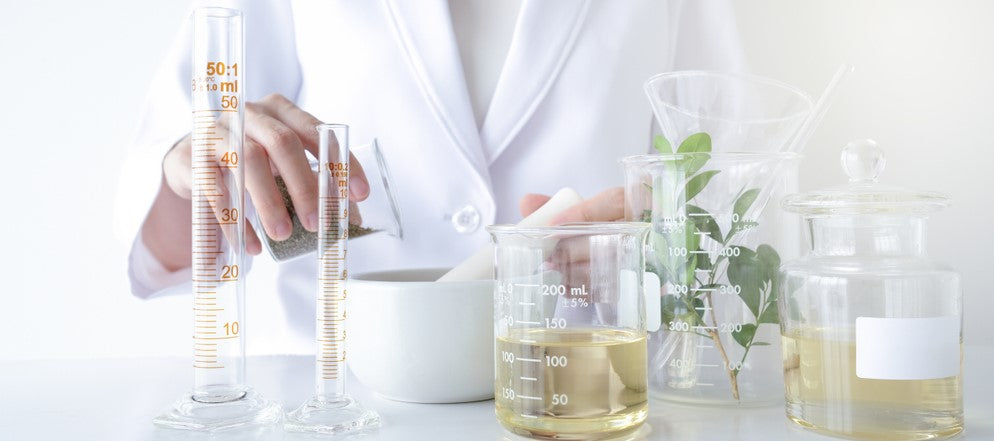TRU47 spent the long winter months blending, distilling, infusing, decanting and bottling blooms harvested in seasons past in preparation for our brand-new line of Pure, Organic Silver Infused Essential Oils. Spring arrived just in time for us to launch this new line, just as April showers prepared to bring May flowers!
Our Pure Notes and custom crafted blends from our Restorative and NatureScapes collections of Essential Oils grew from our desire to enhance sensory experiences, improve moods, and refresh the air we breathe through the aromatic benefits of diffusion. We call this “air care”.
We source our products from organic suppliers who share our conviction that nature-made is best. The botanicals that form the basis for our Essential Oils were grown without man-made chemicals and pesticides that have the potential to harm your health. And their fragrant scents are all-natural too, no synthetic perfumes allowed. To keep them as fresh as the gardens where they were nurtured, we infuse them with silver, long hailed for its preservative powers.
The Discovery of the Aroma and Scent-Based Therapy
Historically, aromatic botanicals and plants have been used for millennia for a number of different therapeutic ailments. Historians trace the use of aromatherapy back some 3,500 years when aromatics were used for religious purposes, medicine and perfume. And while scent-based therapy continued through the centuries to treat a growing list of conditions, from insomnia, headaches, sore throats, anxiety, and depression, it wasn’t until 1935 when the actual term “aromatherapy” was coined by French chemist Rene-Mauries Gattefosse after he effectively treated a burn with lavender essential oil.
We know that scent can also trigger memories, soothe our senses and often relax our reflexes with each breath we take, begging the question:
Is there science behind the scents?

The Science of Scent Rooted in the Olfactory and Limbic Systems
According to Harvard University’s Life Sciences Profession and chair of the Department of Molecular and Cellular Biology, Venkatesh Murphy, in a panel discussion “Olfaction in Science and Society,” sponsored by the Harvard Museum of Natural History in collaboration with the Harvard Brain Initiative, “Smells are handled by the olfactory bulb, the structure in the front of the brain that sends information to the other areas of the body’s central command for further processing. Odors take a direct route to the limbic system, including the amygdala and the hippocampus, the regions related to emotion and memory.”
Smell alone can elicit a strong emotional response without the recollection of an explicit memory. Sometimes it’s just the feeling we recall when we come across a familiar scent that transports us somewhere else in that moment. “This has exciting implications for the sense of smell’s role in our mental health,” say the researchers who explain “that we can train ourselves to become relaxed in the presence of a scent that’s been associated with calm feelings. Simply having the ability to re-sniff that odor in a tense situation can act as a surrogate for reducing stress.”
And the science behind aromatherapy is similar to the science behind scents.
As its name implies, Aromatherapy uses aromatic scents to stimulate smell receptors in the nose, which then send messages through the nervous system to the limbic system — the part of the brain that controls emotions.t works its magic through essential oils that have been extracted from plants’ leaves, roots, or petals and are typically fragrant. Healing sciences have deemed many of them useful for their therapeutic qualities, finding them to be anti-inflammatory, antiseptic, fever-reducing and sleep inducing. Essential oils have also been used to support mood, calm stress and anxiety, ease headaches and insomnia, and soothe skin problems, musculoskeletal issues and sinus problems.
If you have ever surrendered to an aromatherapy massage or facial, you may recall an overall feeling of bliss as the scents sent your senses to a peaceful place, your body relaxed, and your mood mellowed. There’s science behind that too.

How Fragrance Effects Emotions
A 2005 study published in Chemical Senses, by Stephen Warrenburg on the Effects of Fragrance on Emotions: Moods and Physiology concluded that certain fragrances affect mood by eliciting a muscle-relaxing effect. Other studies followed detailing the effects that childhood fragrances had on people.
If you have ever caught a whiff of a warm-from-the-oven apple pie or your grandmother’s flowery perfume that triggered happy childhood memories, you may recall smiling out of nowhere, simply by the memory of it.
You’re not alone. The nose knows what makes us feel good. Which is why spas and wellness centers commonly infuse the air with lavender and eucalyptus. Lavender immediately brings a sense of calm, whereas eucalyptus brings a clean note that can also encourage focus and energy.
You don’t need to leave your home to experience the blissful and healing feeling fragrances bring to the table. Today you can find them working their magic in a variety of essential oils, easily disbursed from diffusers so you can breathe in their goodness easily and effectively.
Discover the power of petals packaged in essential oils, you’ll not only find them to be great ways to scent a room, you’ll find them to be essential for elevating your mood too.





